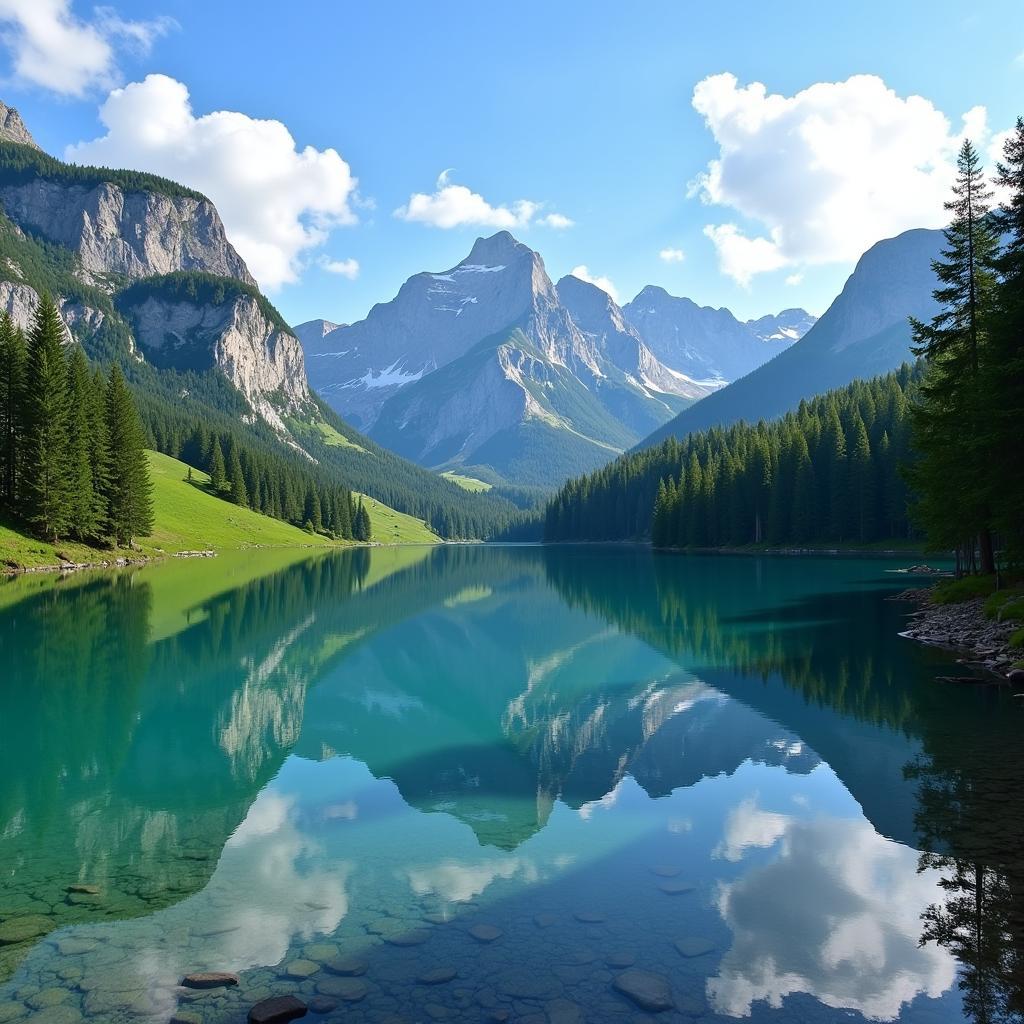Natural places are commonly featured in IELTS Speaking tests, particularly in Part 2. This topic allows candidates to demonstrate their vocabulary range and ability to describe locations vividly. Let’s explore how to excel when discussing a natural place you enjoy visiting.
Part 1: Introduction and Interview Questions
Common questions examiners may ask:
- Do you prefer natural places or urban areas?
- How often do you visit natural places?
- What kinds of natural places are there near your home?
Sample answer (Band 8-9):
“I definitely have a strong affinity for natural environments. I try to immerse myself in nature at least twice a month, as it helps me recharge and unwind. Near my home, we have several pristine beaches and a sprawling national park that offers various hiking trails.”

Part 2: Cue Card
Describe a natural place in your country that you enjoy visiting
You should say:
- Where it is
- How you get there
- What you can see and do there
- And explain why you enjoy visiting this place
Sample Answer (Band 6-7):
“I want to talk about a beach called My Khe in Da Nang city. It’s about 20 minutes from my house by motorbike. The beach has white sand and clear blue water. You can swim, sunbathe, or play volleyball there. I enjoy visiting because it’s peaceful and beautiful. The sunset views are amazing, and I can relax with my friends there.”
Similar to describe a park or garden in your hometown, this natural location offers various recreational activities.
Sample Answer (Band 8-9):
“I’d like to describe Ha Long Bay, a UNESCO World Heritage site in northern Vietnam. This breathtaking natural wonder is approximately 170 kilometers from Hanoi, and I usually reach there by taking a luxury cruise from the mainland. The bay is characterized by thousands of limestone karsts and isles rising dramatically from the emerald waters. Visitors can engage in various activities, from exploring magnificent caves to kayaking through hidden lagoons. What makes this place truly special is its perfect harmony of natural elements – the interplay between sea, sky, and stone creates an almost otherworldly atmosphere. I find it incredibly therapeutic to witness the ever-changing scenery as the sun moves across the sky, casting different shadows on the limestone formations.”
For those interested in similar topics, you might want to explore how to describe a place in your country you want to explore further.
Part 3: Discussion Questions
Q: How can governments better protect natural places?
A (Band 8-9): “Governments can implement comprehensive conservation strategies including strict regulations on development near protected areas and substantial penalties for environmental violations. They should also allocate significant resources to environmental education and foster sustainable tourism practices.”
Q: Why do some people prefer artificial environments to natural ones?
A (Band 8-9): “Modern society has conditioned many individuals to prefer the conveniences and amenities of urban settings. The predictability and controlled nature of artificial environments often provides a sense of security, unlike the unpredictable aspects of natural settings.”
This topic relates well to describe a park or public space in your area that you visit regularly.
Key Vocabulary and Expressions
- Pristine /prɪˈstiːn/ (adj): completely natural and unspoiled
- Breathtaking /ˈbreθteɪkɪŋ/ (adj): extremely impressive or beautiful
- Therapeutic /ˌθerəˈpjuːtɪk/ (adj): having a beneficial effect on the body or mind
- Endemic /enˈdemɪk/ (adj): native and restricted to a certain place
- Biodiversity /ˌbaɪəʊdaɪˈvɜːsəti/ (n): variety of plant and animal life
Just as with describe a city known for its historical sites, using specific and varied vocabulary will enhance your response significantly.